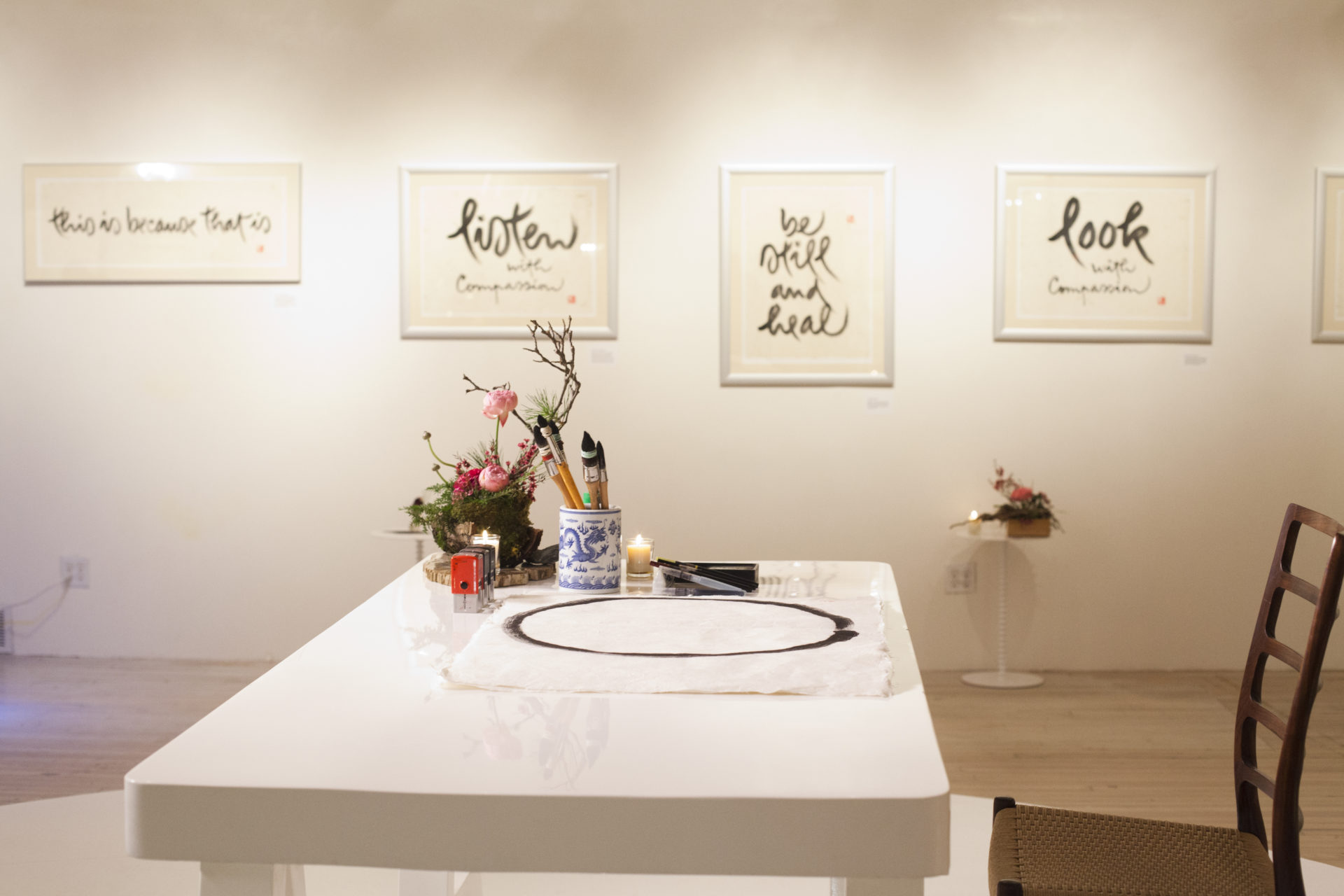By Maria Y. Rodriguez
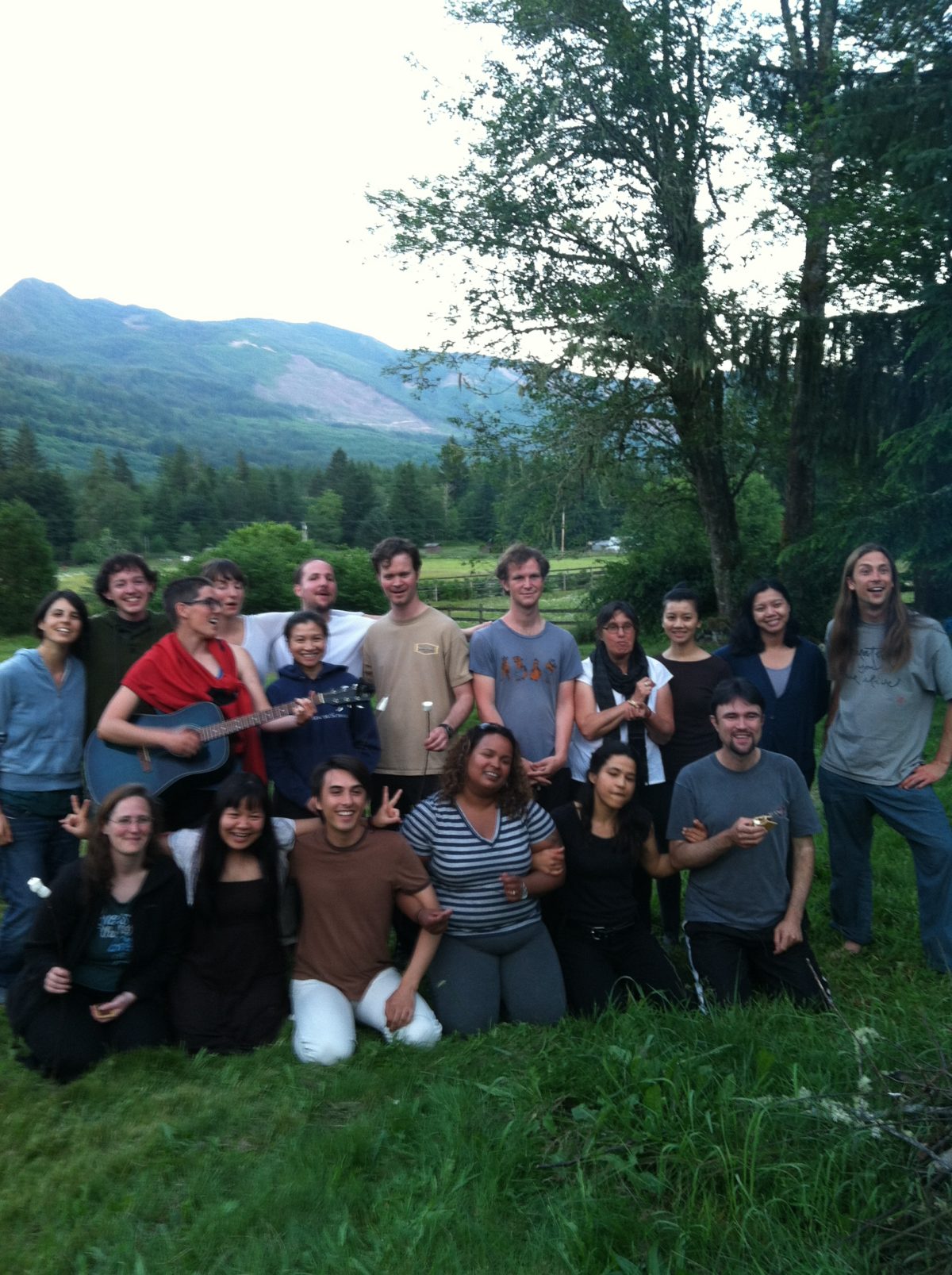
I moved to Seattle, Washington, two years ago from Philadelphia, Pennsylvania. It took me a while to find a practice community, mostly because there is only one in Thay’s tradition and I lived quite far from it. When I did arrive at MCPS (Mindfulness Community of Puget Sound, the urban sister practice center to rural Mountain Lamp) a year later,
By Maria Y. Rodriguez

I moved to Seattle, Washington, two years ago from Philadelphia, Pennsylvania. It took me a while to find a practice community, mostly because there is only one in Thay’s tradition and I lived quite far from it. When I did arrive at MCPS (Mindfulness Community of Puget Sound, the urban sister practice center to rural Mountain Lamp) a year later, I was happy to find such a strong, deeply committed community, but I wondered: Where were the younger folks?
Practicing with elders is wonderful and incredibly enriching, but I also felt like I needed an opportunity to connect with people who identified as I did in the world and were going through some of the same life transitions—being a student, starting a career, building intimate relationships, understanding my own and others’ sexuality and sexual identity, understanding my own and others’ gender identity, etc.
As a person of color, I am aware that practicing with people who share my identities is a powerful gift, a chance to heal pain and suffering that might not otherwise be touched. In my experience, in order to breach the walls that keep people separated (walls of pain, fear, suspicion, loss, and heartache), it is important first to give ourselves strong, safe spaces for practice. We come together within our identities to remember our strength, resilience, and connection, and to fall in love with life all over again.
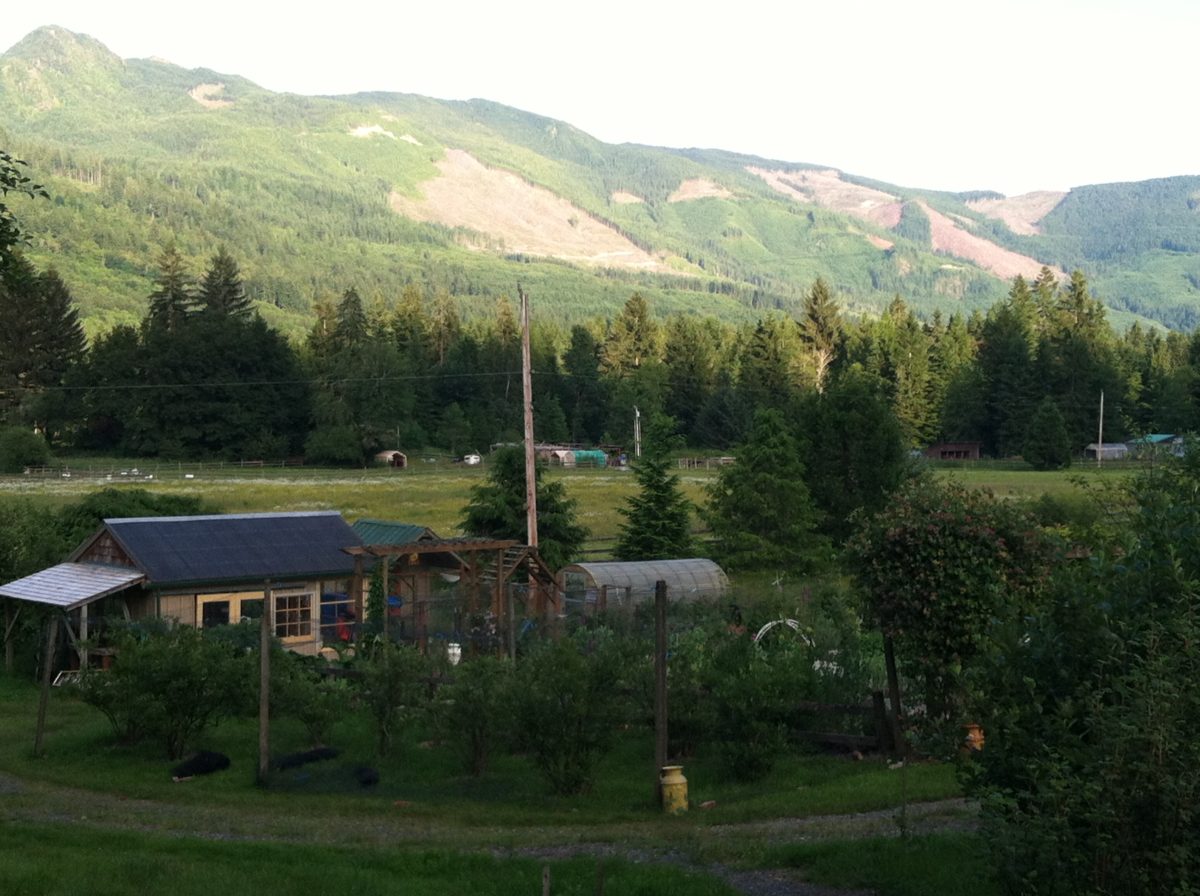
Sharing the Dharma
While living in Philadelphia, I had participated in some Wake Up events, and I was eager to continue exploring Wake Up’s healing spirit and energy. After a few months of practicing with MCPS, I was approached by the folks putting together the Pacific Northwest Wake Up tour and they asked if I could help with organizing. With the help of the People of Color and Allies Sangha of Seattle (POCAS), we secured a room for an event on the University of Washington campus.
MCPS also supported the Wake Up tour by offering the practice center, Dharma Gate, for a non-residential, weekend Wake Up retreat and to serve as a dorm for the tour facilitators. What a great experience! Singing, laughing, crying, practicing together helped shift so much pain and suffering in the hearts of the retreatants. There was so much joy nourished, so much happiness shared—writing about it makes me smile even now! The experience convinced a few of us that a Seattle Wake Up group was possible. A month or so later, seattle@wkup.org was born.
Seattle Wake Up members wanted the chance to practice together with other Wake Up Sanghas across the Pacific Northwest in a retreat setting, so when I was asked to be part of a planning team to help put together a five-day retreat at Mountain Lamp, I readily agreed. My greatest aspiration is to share the Dharma with those who would like to receive it—those seeking comfort and spiritual nourishment. I was not about to pass up the opportunity to be of service. What I didn’t know was how much the experience would serve me.
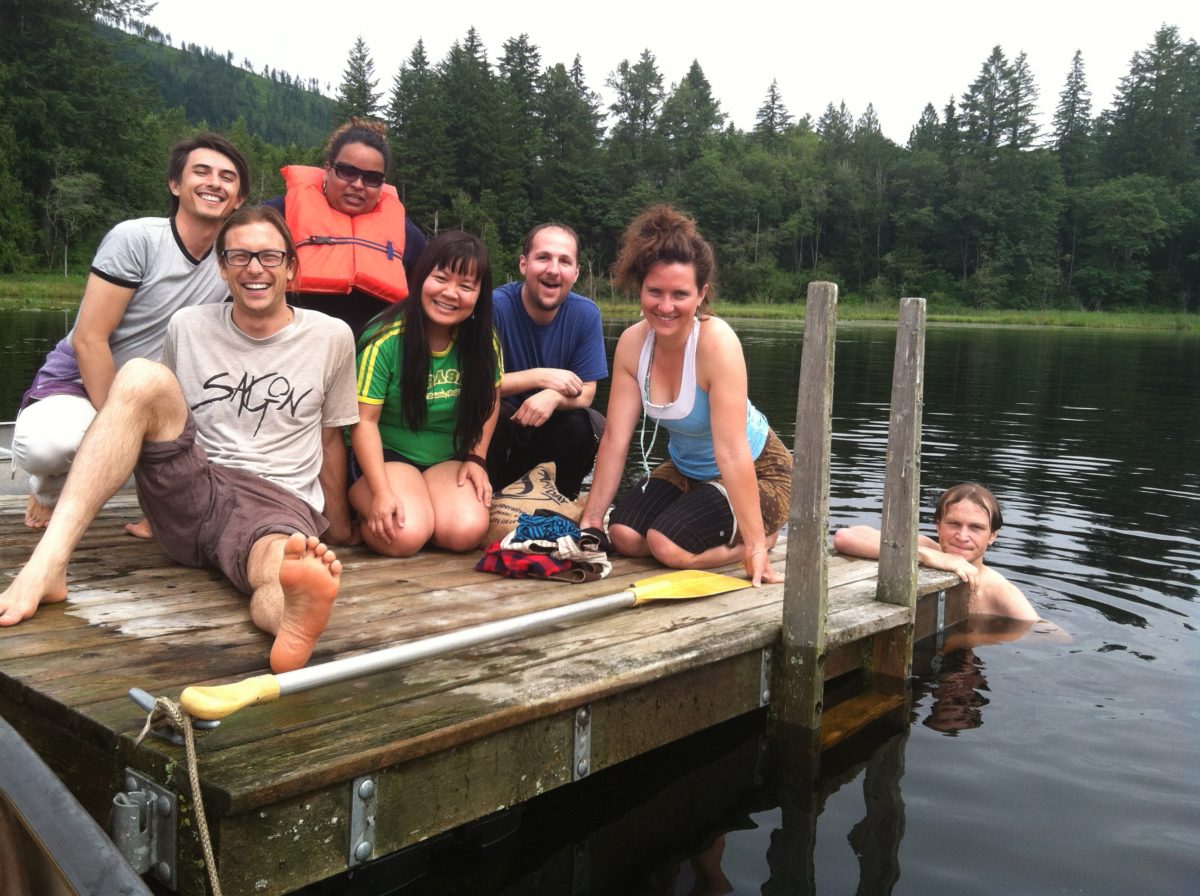
Aspiring Together
Arriving at Mountain Lamp, I was awestruck: the hills rolled and the birds and butterflies sang for me. I was so eager to meet all of the retreatants and to practice with them in this sacred space.
Together, we laid out our goals. We wanted to:
- Create a format that would allow for mindfulness instruction but emphasize the fact that we were all on retreat together. Our peer facilitator format allowed for instruction without hierarchy, a central way of being within the Wake Up movement.
- Create opportunities for leadership development within the Wake Up Sangha. To encourage this, we focused on helping folks learn how to invite the bell as a central form of our practice; it was important for us to make sure everyone had the chance to invite bells for at least one activity if they wanted to, no matter what their level of experience had been before. After all, if you don’t start somewhere you won’t be anywhere!
- Make sure that retreatants had FUN! Sitting and walking meditation are wonderful, so we sought to have a strong practice schedule that left plenty of time to apply our mindfulness in activities such as swimming and canoeing in a lake, hiking, singing, dancing, and even a bonfire complete with vegan s’mores!
Surrendering in Sangha
During the first day of the retreat, one of the retreatants and I began talking about our experience with the Fifth Mindfulness Training, specifically around compulsive overeating. This is something that has caused me a lot of pain and suffering from a very young age. I have tried every book, every diet, every behavioral/cognitive trick, but have never been able to relieve the suffering or get help. My new friend shared some stories and literature from a twelve-step program that sought to help compulsive overeaters like me with a solution that works, one based on deep spiritual work.
The next day, as I was preparing for a trip to the lake, I stopped next to a beautiful old tree (I always turn to trees in my moments of greatest despair—their solidity and steadiness soothe me) and started sobbing. Huge waves of anger, resentment, frustration, loneliness, and despair welled up in me and moved through my tears. My new friend had shown me what my heart had been searching for. I needed the kind of help that came from connecting with others. I needed the strength of a power greater than myself. I needed a Sangha dedicated to the alleviation of the compulsion to overeat. I finally had a solution—I was ready to begin the process of surrendering my years of pain and isolation. What a relief!
The physical retreat ended June 30, 2013. I went to my first twelve-step meeting July 1. Since then, I have surrendered fifty pounds and am working, one day at a time, to surrender even more. I feel that the balance between formal practice and time spent in community is what helped make my transformation possible. My heart was able to open wide and let in the light and love of a kind friend in the practice. This balanced format, for me, is the epitome of engaged Buddhism—engagement with every moment, with each other, and most importantly, with ourselves.
My dis-ease, once hidden away in the darkest corners of my heart, was showered with the light of compassion and understanding generated from our sitting, walking, and sharing mindfully together. I have no idea what I would have done if this retreat had not happened––if I had not been invited to show up for others and gifted with the capacity to show up for myself. I’m grateful to all those who have supported Wake Up in the Pacific Northwest and throughout the world, because thanks to them, I do not have to find out.
May all beings be free from suffering. May they all be happy and healthy. May all beings be loved and cherished. May they all know peace.
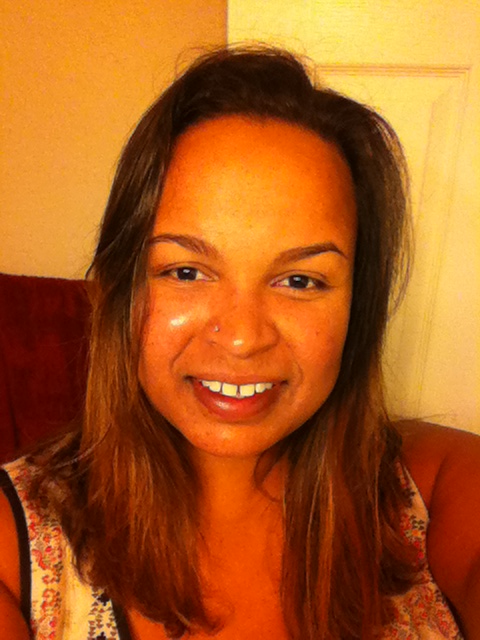
Maria Y. Rodriguez, Compassionate Light of the Heart, is thirty and an aspirant to the Order of Interbeing. She has participated in Wake Up events in Philadelphia and the Pacific Northwest. She is a Wake Up Ambassador for Seattle Wake Up, where she currently lives and works as a Ph.D. student in Social Welfare.

